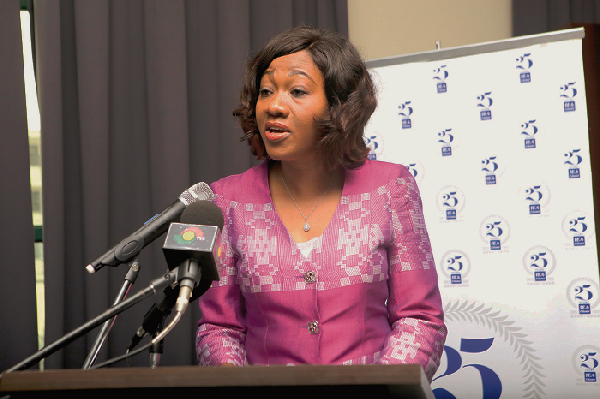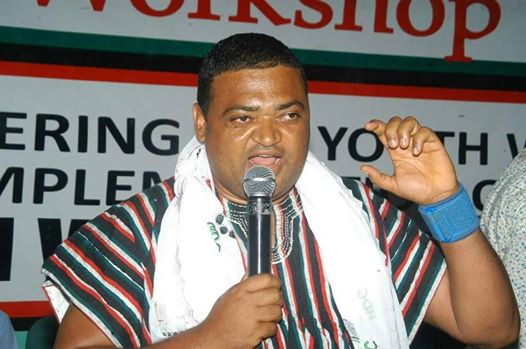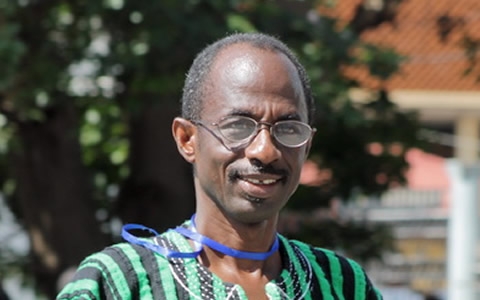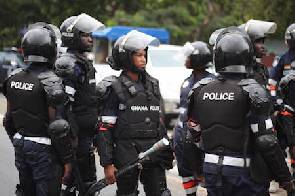
Ghana Elections News-The Electoral Commission has started processes towards the implementation of the Representation of the People’s Amendment Act (ROPAA), 2006 (Act 699).
The law enfranchises Ghanaians in the diaspora.
The election management body decided at an Inter-Party Advisory Committee (IPAC) meeting on Thursday, 18 October 2018 that it will set up a committee to come up with a roadmap for the implementation.
In December last year, the Human Rights Division of the Accra High Court ordered the EC to implement the law within 12 months after an 11-year delay.
Per the law, Ghanaian citizens living abroad can take part in national elections in 2020.
Successive governments over the years failed to implement it, prompting some private citizens: Kofi A. Boateng, Nellie Kemevor, Obed Danquah, Christiana Sillim and Agyenim Boateng, all residing in New York and Kentucky in the USA, and citizens by birth, dual citizenship, or both, to head to the court over the matter through their lawyers A-PARTNERS@LAW led by Samson Lardy Anyenini.
The court presided over by His Lordship Justice Anthony K. Yeboah delivered a judgment on Monday, 18 December 2017 directing that EC to implement the law.
The 1st Applicant, 65, comes from Sawuah in Ashanti Region; the 2nd Applicant, 72, is from Atimatim in Ashanti Region; the 3rd, 60, is from Aburi in Eastern Region; the 4th, 57, is from Peki in the Volta Region and the 5th, 49, is from Workambo in Upper East Region.
Background
The Kufuor administration superintended the passage into law in 2006, of Act 699, to allow citizens, including dual nationals, to be registered abroad and to vote from abroad.
The Applicants contended that a promise by former EC Chairman Dr. Kwadwo Afari-Gyan in November 2007, of preparations to implement it “in stages” as well as an announcement in July 2007 by EC’s Ag. Director of Public Affairs Yorke Aidoo that the EC was to formulate regulations for implementation of the ROPAA after a planned tour of Asia, Europe, the Americas and African countries where Diasporans vote, remained unfulfilled.
The EC set up a committee in 2011 which produced some modalities but has since been silent on the project.
The international Electoral Knowledge Network reports that there are 115 countries in the world, including 28 in Africa that have enabling laws for overseas voting, with Ghana singled out as a case of a country that has passed such a law but has not implemented it.
They have contended that it discriminatory to allow only Ghanaians studying abroad and staff of Ghana’s Mission/Embassies abroad to be registered and vote from abroad. They contend this is not new as some including Senegal, South Africa, Namibia, Niger, Mozambique, Cape Verde, and South Sudan either allow their citizens abroad to vote in presidential elections or are piloting the system.
They noted they contribute immensely to Ghana’s economy and that in 2014 the Ghana Revenue Authority reported of collecting GHC 17 billion in taxes, and thus using a cedi exchange rate of 3.9 to the dollar, the GRA would be deemed to have collected USD 4.36 billion from a base of more than 25 million people.
Compared to the average conservative amount of USD 4.4 billion of personal remittance inflows into Ghana from its emigrant base of 801,000 it is not a stretch to demonstrate the overwhelming financial inflow from GLAs (Ghanaians Living Abroad) that would make the quantum of GRA’s collections pale should the nation wake up to husband its GLAs strategically, starting with extending to them their right to vote, and thereby internalising their connections to their homeland.
The applicants, who are all members of the Progressive Alliance Movement (PAM), a New York State incorporated nonprofit organisation, sought from the Court: “A Declaration that Applicants have fundamental human rights under Articles 17(2), 42 and 33(5), of the 1992 Constitution of the Republic of Ghana, the Representation of the People (Amendment) Act 2006 [Act 699] Article 13 of the African Charter on Human and People’s Rights, Article 25 of The International Covenant on Civil and Political Rights, Article 21 of the Universal Declaration of Human Rights and Protocol 1 (article 3) of the European Convention on Human Rights.
a) “to be registered as voter[s]” while resident abroad and being outside the jurisdiction of the Republic of Ghana, and doing so from/at their places of residence abroad or designated centers close to their places of residence abroad or from/at the Ghana Mission/Embassy within their jurisdiction abroad;
b) to be issued voters Identity Cards “to enable” them “to vote in public elections and referenda” while resident abroad and being outside the jurisdiction of the Republic of Ghana at the time of such elections, and doing so from/at their places of residence abroad or designated centers close to their places of residence abroad or from/at the Ghana Mission/Embassy within their jurisdiction abroad;
c) “to vote in public elections and referenda” particularly Presidential and Parliamentary elections while resident abroad and being outside the jurisdiction of the Republic of Ghana at the time of such elections, and doing so from/at their places of residence abroad or designated centers close to their places of residence abroad or from/at the Ghana Mission/Embassy within their jurisdiction abroad;
d) A Declaration that the non-compliance of 1st Respondent, in particular, to operationalise the Act 699 since same became law on the 24th day of February 2006 is a breach of Applicants’ fundamental rights under said various laws and legal instruments;
e) A Declaration 2nd Respondent’s failure, neglect or refusal to uphold/ensure full compliance/operationalisation of the Act 699 since same became law on the 24th day of February 2006 is a breach of Applicants’ fundamental rights under said various laws and legal instruments;
f) A Declaration that each of the Applicant’s “right to vote and entitle[ment] to be registered as a voter for the purposes of public elections and referenda” in light of the Act 699 and said various laws and legal instruments are not subject to any condition precedent aside the article 42 age and sanity of mind criteria;
g) A Declaration that it is discriminatory for Respondents particularly 1st Respondent to continue to register abroad and ensure that a category of citizens studying abroad or working in Ghana’s Missions/Embassies abroad vote in public elections and referenda while in abroad to exclusion of the Applicants.
h) An Order of mandamus directed at Respondents particularly 1st Respondent to forthwith, uphold/ensure full compliance/operationalisation of the Act 699;
The EC, primarily, had been arguing that it had plans to implement the law and should not be compelled to do so. It had earlier pleaded to be given time to produce documents on its implementation plans but failed to do so after a two-week grace period. It also challenged the process by which the applicants invoked the court’s jurisdiction as wrong while insisting that the right to vote is not a human right.
What do you think about this piece? Share your comment in the comment thread and share the story using the social media buttons above. Thank you.





